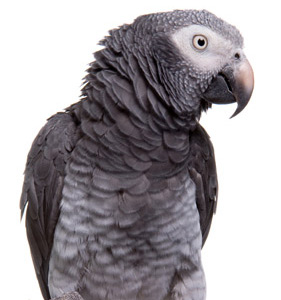Navigation
Install the app
How to install the app on iOS
Follow along with the video below to see how to install our site as a web app on your home screen.
Note: This feature may not be available in some browsers.
More options
You are using an out of date browser. It may not display this or other websites correctly.
You should upgrade or use an alternative browser.
You should upgrade or use an alternative browser.
Quaker parrot plucking feathers
- Thread starter Pasa k
- Start date
Emeral
Well-known member
- Sep 16, 2021
- 209
- 630
- Parrots
- Hanhs Macaw
Hello and welcome,
Hope you can show us some pictures and tell us more about him, do we can go into details to help him the best we could.
This is a general information on the topic.
:strip_icc()/SPRP_SocialImage-no-transparency-5ad5fc0cc5542e00362c0bb9.png)
 www.thesprucepets.com
www.thesprucepets.com
Hope you can show us some pictures and tell us more about him, do we can go into details to help him the best we could.
This is a general information on the topic.
:strip_icc()/SPRP_SocialImage-no-transparency-5ad5fc0cc5542e00362c0bb9.png)
Getting Started with Your Pet Bird
Learn about adoption and breeds, what supplies you will need before you bring your bird home, what living with birds is like and more.
Emeral
Well-known member
- Sep 16, 2021
- 209
- 630
- Parrots
- Hanhs Macaw
So we can go into details to help him the best we could......
How many hours of play time perday,
who is his favorite person is,
what food is he on,
His favorite food,
the sleep hours he gets,
The cage space he has,
what kind of toys he play
With the same action, we all get the same outcome. So I hope we can find out what new action may bring about different outcome for him and his feather.
How many hours of play time perday,
who is his favorite person is,
what food is he on,
His favorite food,
the sleep hours he gets,
The cage space he has,
what kind of toys he play
With the same action, we all get the same outcome. So I hope we can find out what new action may bring about different outcome for him and his feather.
Littleredbeak
Well-known member
- May 27, 2020
- 621
- 870
My IRN had a plucking issue with her wing feathers on one wing and her tail feathers. I became a little too comfortable on taking care of her blood feathers. I gave her a vitamin B supplement that did the trick for her and she final is leaving her feathers intact! Both are supplements i give my birds the plumage one is the one I think helped her feathers but I give Anne (IRN) both.
Attachments
Hello,
As others stated it helps to have more information. Plucking is a very complex issue. Health issues have to be ruled out first.
Quakers are prone to mutilation of feet, and Plucking. Its called quaker mutilation syndrome. This is partly because of their high intelligence, highly social parrot, and a very active species. Simular to cockatoo.
So they turn to self destruction when their higher needs aren't met.
So a good starting point is to increase time out of the cage to a minimum of 6 hours a day. ( as shared with me by my avian veterinarian , when I took in a rescue and mild plucker, and feet mutilating quaker. We did get her to stop chewing her feet, and not increase plucking, but she still plucks. Even though her home environment and diet and social life are improved...but these are tge best basics to start with after health issues are ruled out)
So I will continue. Increase your interactions time. I spend at least an hour preening each of my 3 quakers feathers. They are highly social live in huge colonies, and the older chick's stay in the parents apartment and help raise the next brood. Least me to believe they need a lot of contact, as has my experience with 4 of them.. Make the diet the best you can, plenty if fresh veggies and leafy greens daily. Increase the birds ability to make self choices, in movement, so keep flighted, in when to take a bath, offer a wide shallow dish ( like a serving dish or glass brownies pan) with about 2 inches if fresh water daily so they. An choose when to bathe. Offer a variety of chewable and stuff they can destroy make an impact on. Yucca chips, those bird bagels, willow balls stuffed with shreds of paper ect. Teach foraging, do foraging together. Set up perches and swings outside the Cage like jungle gym. I use ceiling hooks abd fishing long to hang thing a down above the cage for them to climb, jump, swing on. Really try to maximize their use of the environment.
10 hours of uninterrupted sleep on a strict schedule. Regular bedtime. Mine all have a non fluffy sleep tent. That seems to be a highly debated topic, but has worked for years with mine. You do not have to offer a sleep hut. But I would suggest making available a wide perch higher up in a corner of tge cage with a visual retreat, like hanging a big toy in front of the perch . Thst can help them feel secure when they roost.
Make sure there aren't other pets, people, or something causing them stress. Maybe even something outside.
Always greet them as soon as you wake up. Always let them known when you are leaving, use the same phrase, create ritual. Always greet as soon as you return. This is important to flock, abd let's them feel more in control of the environment. That's advice from a parrot behavior consultant.
All the above us go to for every type of parrot behavior issues. And is the best place to start . Some individuals just have higher needs than others fir activities, and social interactions, and mental stimulated , or are more sensitive to stress.
Because many parrots are forced weaned, or rushed. It causes early food insecurities and stress.. so offering a warm comfort feeding before bedtime for adult parrots can be beneficial. You can use baby burd formula, or offer a spoonful of warm cooked oatmeal, or warm scrambled egg or boiled egg. But fir some parrots this van trigger breeding behavior, so be observant and aware, and stop if thst seems to be the case. Instead offer a non warm and non soft food treat by hand before bed.
I will go and get a good article on stress in parrots and link here.
Its certainly stressful on us to see our burds turn to self destruction behavior.

 lafeber.com
lafeber.com
As others stated it helps to have more information. Plucking is a very complex issue. Health issues have to be ruled out first.
Quakers are prone to mutilation of feet, and Plucking. Its called quaker mutilation syndrome. This is partly because of their high intelligence, highly social parrot, and a very active species. Simular to cockatoo.
So they turn to self destruction when their higher needs aren't met.
So a good starting point is to increase time out of the cage to a minimum of 6 hours a day. ( as shared with me by my avian veterinarian , when I took in a rescue and mild plucker, and feet mutilating quaker. We did get her to stop chewing her feet, and not increase plucking, but she still plucks. Even though her home environment and diet and social life are improved...but these are tge best basics to start with after health issues are ruled out)
So I will continue. Increase your interactions time. I spend at least an hour preening each of my 3 quakers feathers. They are highly social live in huge colonies, and the older chick's stay in the parents apartment and help raise the next brood. Least me to believe they need a lot of contact, as has my experience with 4 of them.. Make the diet the best you can, plenty if fresh veggies and leafy greens daily. Increase the birds ability to make self choices, in movement, so keep flighted, in when to take a bath, offer a wide shallow dish ( like a serving dish or glass brownies pan) with about 2 inches if fresh water daily so they. An choose when to bathe. Offer a variety of chewable and stuff they can destroy make an impact on. Yucca chips, those bird bagels, willow balls stuffed with shreds of paper ect. Teach foraging, do foraging together. Set up perches and swings outside the Cage like jungle gym. I use ceiling hooks abd fishing long to hang thing a down above the cage for them to climb, jump, swing on. Really try to maximize their use of the environment.
10 hours of uninterrupted sleep on a strict schedule. Regular bedtime. Mine all have a non fluffy sleep tent. That seems to be a highly debated topic, but has worked for years with mine. You do not have to offer a sleep hut. But I would suggest making available a wide perch higher up in a corner of tge cage with a visual retreat, like hanging a big toy in front of the perch . Thst can help them feel secure when they roost.
Make sure there aren't other pets, people, or something causing them stress. Maybe even something outside.
Always greet them as soon as you wake up. Always let them known when you are leaving, use the same phrase, create ritual. Always greet as soon as you return. This is important to flock, abd let's them feel more in control of the environment. That's advice from a parrot behavior consultant.
All the above us go to for every type of parrot behavior issues. And is the best place to start . Some individuals just have higher needs than others fir activities, and social interactions, and mental stimulated , or are more sensitive to stress.
Because many parrots are forced weaned, or rushed. It causes early food insecurities and stress.. so offering a warm comfort feeding before bedtime for adult parrots can be beneficial. You can use baby burd formula, or offer a spoonful of warm cooked oatmeal, or warm scrambled egg or boiled egg. But fir some parrots this van trigger breeding behavior, so be observant and aware, and stop if thst seems to be the case. Instead offer a non warm and non soft food treat by hand before bed.
I will go and get a good article on stress in parrots and link here.
Its certainly stressful on us to see our burds turn to self destruction behavior.

Stress Reduction for Companion Parrots – Pet Birds by Lafeber Co.
To put it bluntly, keeping companion parrots is similar to trying to pound a square peg into a round hole. The fact that they do as well as they do is testimony more to their adaptability than it is to our husbandry efforts.
- Thread Starter
- Thread starter
- #6
Hello and welcome,
Hope you can show us some pictures and tell us more about him, do we can go into details to help him the best we could.
This is a general information on the topic.
:strip_icc()/SPRP_SocialImage-no-transparency-5ad5fc0cc5542e00362c0bb9.png)
Getting Started with Your Pet Bird
Learn about adoption and breeds, what supplies you will need before you bring your bird home, what living with birds is like and more.www.thesprucepets.com
Attachments
Most Reactions
-
 627
627 -
 266
266 -
 231
231 -
 187
187 -
 158
158 -
 112
112 -
 108
108 -
 82
82 -
 72
72 -
 55
55 -
O
52
-
 46
46 -
 45
45 -
 40
40 -
 34
34
Similar threads
- Replies
- 8
- Views
- 481
- Replies
- 3
- Views
- 171



